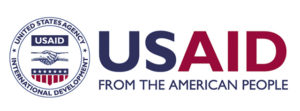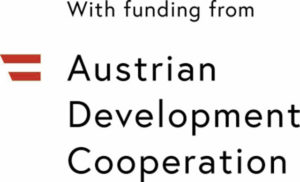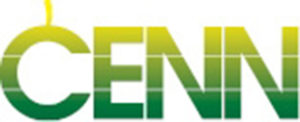The green economy is where the private sector and infrastructure must change to align with long-term sustainable practices, it means investing in human capital and reducing resource consumption
On June 18 and 19, a regional conference and the first ever social and green enterprise exhibition was organized by CENN at Expo Georgia. The two-day large-scale event highlighted the importance of a regenerative and green economy and showcased green and social enterprises in Georgia.
The event was held within the framework of the projects EU4Youth – Social Entrepreneurship Ecosystem Development for Green Growth in Georgia and Armenia; Digital Caucasus, funded by the USAID Bureau for Europe and Eurasia, Economic Development, Governance and Enterprise Growth project in Georgia, Armenia and Azerbaijan; and Sustainable Forest Management for Rural Development supported by the Austrian Development Cooperation.

The Regional Conference ‘Green Economy and Inclusive Growth in the South Caucasus,’ initiated a discussion around current trends, challenges and opportunities for the development of the green economy, with a special focus on green entrepreneurship and rural development.
The conference also dealt with important topics such as digital transformation of the tourism sector and youth empowerment through entrepreneurship, bringing together local, national and international organizations active in the fields of green economy to discuss the opportunities and challenges of sustainable economic growth and digital transformation in the region.

Alexander Darras, from the EU delegation to Georgia, spoke about the importance of developing a green economy and immense youth role in it.
“The green economy is the model of development we support. We believe in it, and we think all entrepreneurship should become more competitive in order to create that needed green image. In rural areas it is particularly important, because so many people live and work there,” Darras said.
“Digitalization is also a direct priority of the EU. We believe in the tourism sector, and that it has an opportunity to become even more successful, to improve communication through digitalization, and that is why we are here to help.”
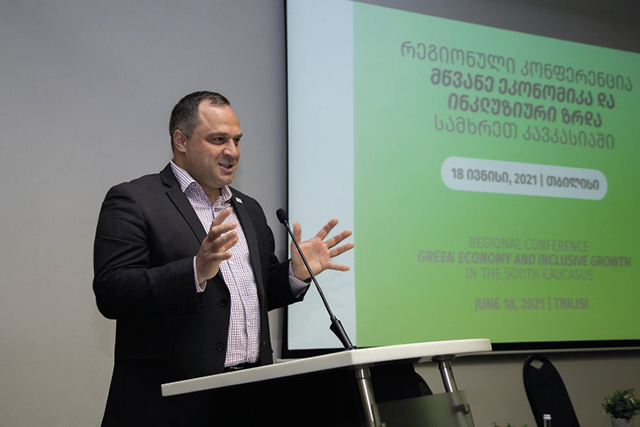
New projects and initiatives that promote green growth were presented during the event, particularly in the directions of youth entrepreneurship, green tourism, and sustainable use of natural and energy resources.
“I am very pleased that the conference is not only cross-border, but that it is also cross-sectoral: we have to involve the EU, we have to create a green economy, we have to have digitalization,” said Alex Karner, Head of the Tbilisi Office of the Austrian Development Agency. “My presence here underlines how important this concept is for Austria. But it is very important to have access to finance. 62 companies will be presenting products here, even ideas in terms of entrepreneurship. They need financing, facilitation, and access to loans. All of us here are experts in our field and we know what it means to talk about sustainability, but to be concrete, to move forward, we need more access to finances, especially in this field,” he noted.
In addition, representatives from Impact Hub Vienna were invited as guest speakers and discussed the best European experience in green and social entrepreneurship.
Alexis Eremia and Tomas Kaissi from Impact Hub Vienna spoke about Entrepreneurial impact ecosystems. Impact Hub is the world’s largest network focused on building entrepreneurial communities for impact at scale.
The main theme of the conference was a green economy and inclusive growth. The Covid-19 pandemic once again reiterated the absolute necessity for a sustainable development and green recovery. Whilst many sectors like tourism took a big hit as a result of the pandemic, new opportunities and visions were also born out of the crisis, and these issues – opportunities and challenges that tourism faced, were the main topics of the panel discussion. Particular attention was paid to small and medium-sized companies in tourism, entrepreneurs who were directly affected by this crisis and how they found a solution, what new services were added and how they coped with this crisis. They also talked about both the private and non-governmental sectors, how they see ways to deal with the challenges, and what needs to be done to overcome the crisis. Also, EU4Youth grantees in Georgia and Armenia presented their green business models and scalability.

New platform – The Green Tourism Digital Platform, created as part of the Digital Caucasus project, was also presented at the conference. The platform supports sustainable, green tourism and consolidates the whole region of the South Caucasus.
Davit Tsiklauri, Senior Financial Markets Advisor at USAID, spoke about tourism and stressed the importance of tourism for Georgia, mentioning a few projects they are working on.
“We have another project, started last week, called Digital Days of Georgia, which entails bringing 18 international influencers from European countries, the US, Australia, and other countries to promote Georgia as a good destination.
“Through Digital Days, millions of tourists will hear about Georgia and hopefully some of them will come and see for themselves.”
Tsiklauri noted that they are co-funding a number of hotels and tourism businesses to use social media to attract international tourists, and they are working on updating strategies and post-Covid action plans. He noted that working with CENN helps Georgia and Armenia to better utilize digital platforms and attract more tourists.
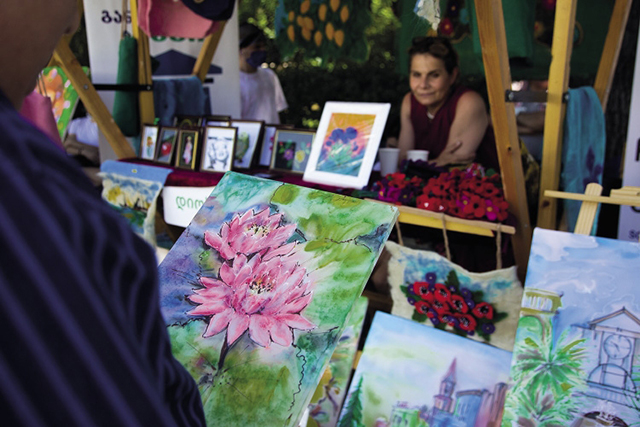
The conference ended with a panel discussion on the topic of sustainable forest management for green growth, with a focus on the opportunities and challenges being created connecting the green economy with the forests of Georgia. The need for a systemic change, that is through the introduction of a green economy in the country that enables the country to tackle climate change, whilst also getting more potential from the forest resources sustainably, and in turn contributing to the economy.
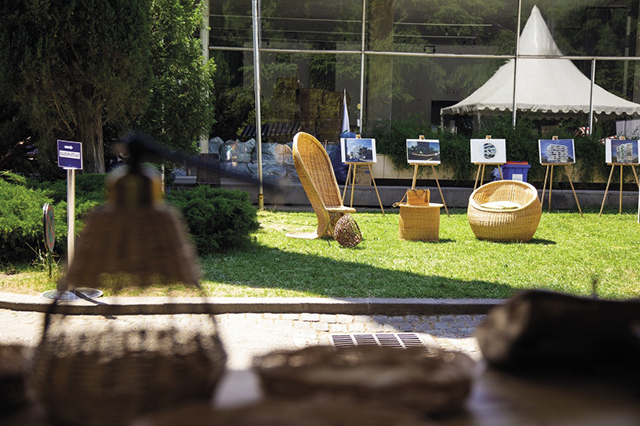
The concept of a green economy means greening the economy, where the private sector and infrastructure must change to align with long-term sustainable practices, it means in investing in human capital, profits increase but resource consumption is reduced and made more sustainable, it also implies increase in employment and reducing social inequality.
The guests discussed the fact that the forestry sector plays a major role in achieving these goals and is one of the leading industries in the green economy, creating opportunities to reduce emissions, increase employment, and other similar benefits. The Georgia Forest Code is very important, which gives forests new functions and new economic opportunities, creates new income for the private sector, and also enables the state to attract more capital and tackle climate change.
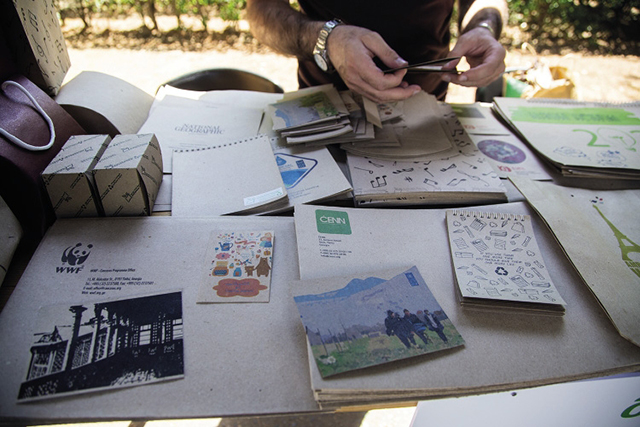
Representing the Georgian government at the conference was Solomon Pavliasvhili, Deputy Minister of Environmental Protection and Agriculture of Georgia. He thanked the invited guests, not only for their funding, but also for having the right sense of what the country needs.
“They have rightly seen the perspectives of green economic growth, green jobs, and it is no longer the distant prospect that we thought it was: in the government program, it is spelled out directly, and we are taking steps in this direction every day,” Pavliashvili said. “If we look at the elements of this concept, it is very important, for economic growth in particular, that as much as possible is done to reduce the pressure by generating waste-free technologies, which can create new jobs; to have less waste going into the landfills. Inclusive growth is a priority of our government, meaning economic growth for everyone, and the key to this is digital technology.”
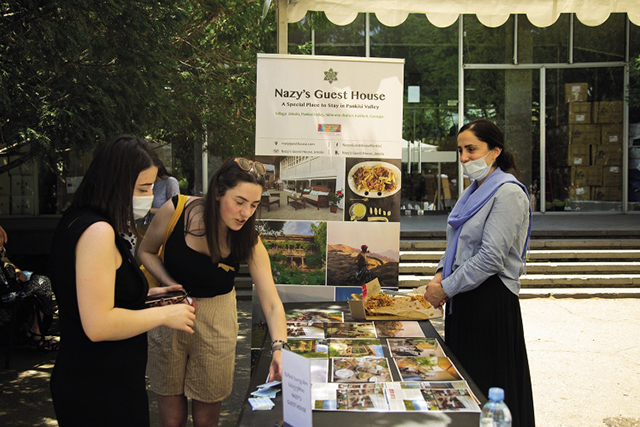
The Social and Green Enterprise Expo
The June 19 exhibition was attended by enterprises operating throughout Georgia which work in social and environmental directions and are of particular value in promoting youth development, sustainable tourism development, and the green economy.
62 different enterprises were presented, among them recycling companies, second-hand clothing stores, toys made of ecologically clean materials, manufacturers of different accessories, tourism enterprises, and members of the Forest Product Association. More than 400 people and entrepreneurs from 7 different regions of Georgia participated in the exhibition.
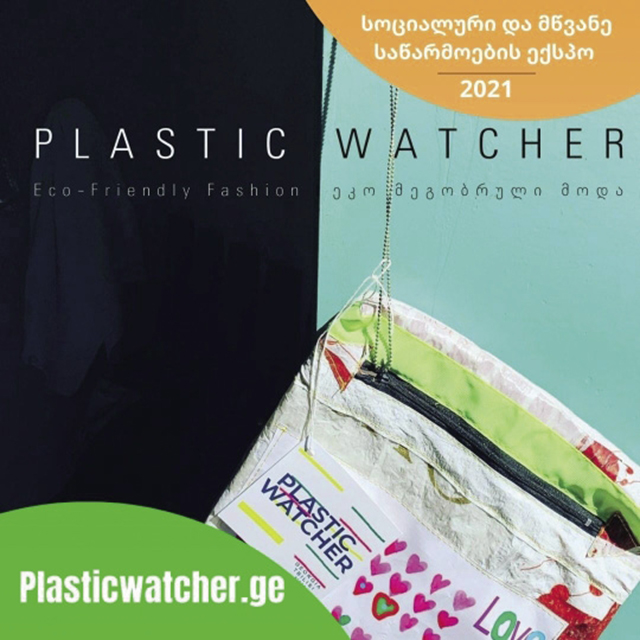
CENN Executive Director Nana Janashia spoke about the event and the importance of cooperation with neighboring countries.
“We are a regional organization and work in the South Caucasus. The EU and other partner and donor organizations see the importance of having more regional projects as the Caucasus is one ecoregion and very unique and important in biodiversity. Thus it makes perfect sense to work in the three South Caucasus countries together and built resilience” Janashia noted. “We believe in networking and regional cooperation and specialize in a number of areas: we work on combating climate change; we work on sustainability; we try to build healthy and prosperous climate resilient communities; and we are trying to empower women and girls to participate in the creation of inclusive solutions. In short, we work with everyone.”

